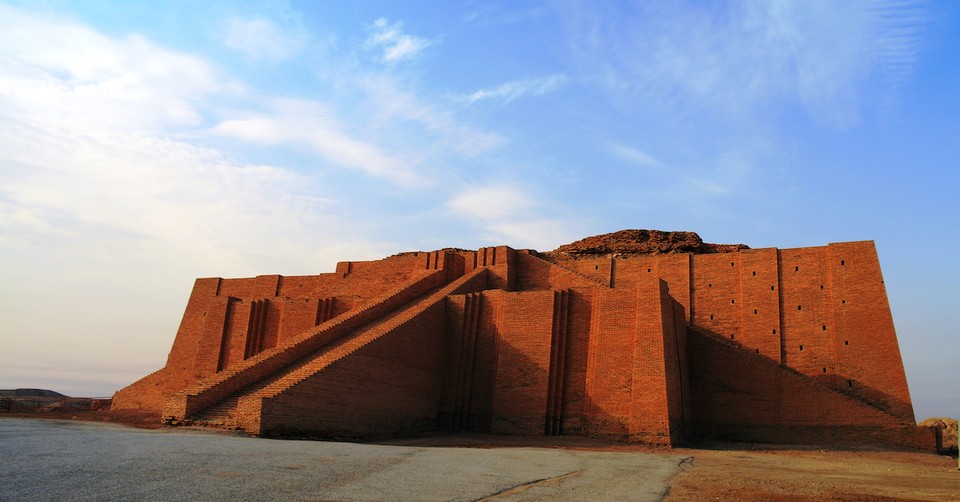7 Facts You Didn’t Know about Nimrod in the Bible

Only seven verses in the Bible mention anything about Nimrod. Little is explicitly said about him. He was a mighty warrior, the son of Cush, and the great-grandson of Noah.
However, legends and tales galore have sprung up about this elusive figure. So what do we truly know about Nimrod?
What Did Nimrod Do in the Bible?
Nimrod is mentioned in three passages.
The first and most thorough passage is Genesis 10:8-12: “Cush was the father of Nimrod, who became a mighty warrior on the earth. He was a mighty hunter before the Lord; that is why it is said, ‘Like Nimrod, a mighty hunter before the Lord.’ The first centers of his kingdom were Babylon, Uruk, Akkad and Kalneh, in Shinar. From that land he went to Assyria, where he built Nineveh, Rehoboth Ir, Calah and Resen, which is between Nineveh and Calah—which is the great city.”
The next time Nimrod appears is in a genealogy at the beginning of 1 Chronicles. His brief listing in 1 Chronicles 1:10 states, “Cush was the father of Nimrod, who became a mighty warrior on earth.”
The final passage also only mentions Nimrod in passing. Micah 5:5-6 says,
“And he will be our peace when the Assyrians invade our land and march through our fortresses. We will raise against them seven shepherds, even eight commanders, who will rule the land of Assyria with the sword, the land of Nimrod with drawn sword. He will deliver us from the Assyrians when they invade our land and march across our borders.”
From this passage in Micah, we gather that Assyria was still regarded as the land of Nimrod—at least by the people of God—hundreds of years later. However, we learn little about Nimrod himself.
What Is the Meaning of Nimrod’s Name?
The name “Nimrod” has now come to mean a great hunter since Nimrod was identified as a mighty hunter in Genesis 10:9. However, the name probably had a different meaning in the original language.
Some scholars posit that Nimrod actually came from a Semitic root, a language similar to ancient Hebrew. The root appears to be a word roughly Romanized to marad, meaning “to rebel.”
Because of this, Nimrod is often thought to have been a rebel against the Lord. The phrasing in the Bible that says he was a mighty hunter “before the Lord” (e.g. Genesis 10:9) might more literally be translated “to the face of the Lord”—in other words, in opposition to God. This possible translation may back up Nimrod’s name as The Rebel.
Who Was Nimrod in History?
Theories abound about Nimrod’s life, from Jewish stories and legends to modern interpretations. We will begin with a few things that we can gather with more surety from the biblical text itself.
The genealogies in Genesis 10 and 1 Chronicles 1 distinctly list Nimrod’s lineage. His father was Cush, the son of Noah’s son Ham. Thus, Noah was Nimrod’s great-grandfather.
Only a few generations had passed since the Flood that destroyed the world and washed away all of humanity other than Noah and his family. Due to Ham’s unfortunate behavior in Genesis 9:18-27, Noah cursed Ham’s son Canaan, who was presumably Nimrod’s uncle. However, it does not appear that Noah directly cursed Ham’s other sons. Cush, then, may not have been under the curse.
Nimrod, according to Genesis 20:8, was a “mighty warrior.” The Hebrew word here, gibbor, could potentially also mean “tyrant,” though it is used many other times in the Bible simply to refer to strong warriors or champions, so the potential conclusion that he was tyrannical is tenuous.
Nimrod was presumably some sort of king, as the Bible records the “centers of his kingdom” in Genesis 10:10-12. These include the great cities of Babylon and Nineveh. His kingdom appears to have extended across Sumer, then called Shinar.
After Nimrod established cities in Shinar, Genesis 10:11 records that he went to Assyria built great cities there, including Nineveh.
7 Facts You Didn’t Know about Nimrod in the Bible
Beyond these facts, there is little we know for certain. So check out the fun facts—and some myths and legends—below.
Nimrod May Not Have Been a Real Person
Some interpreters have suggested that Nimrod was not an individual, but a stand-in term for a rebellious people group. This is possible, but seems unlikely, given that other nations in the surrounding genealogical records are clearly treated as such, whereas Nimrod is portrayed as a singular person. Later Jewish writers and historians also tend to treat Nimrod as a distinct person.
Nimrod May Have Been an Evil Man
We discussed above that the name Nimrod probably came from a root meaning “to rebel,” and that “mighty warrior” could also be translated as “tyrant.” We also noted the phrasing in that he was a mighty hunter “to the face of the Lord.”
These clues continue, however. In Genesis 10:8, where it says Nimrod “became a mighty warrior on the earth,” there are other possible translations of the Hebrew words. Other translations, like the ESV, say that he was “the first on earth to be a mighty man,” perhaps the first tyrant post-Flood. “Became” is also a word in the phrase that can have multiple meanings—another translation of Genesis 10:8 might state, “he made a profaning by being a mighty one on the earth.”
Context clues like these suggest that Nimrod may have set himself up as a mighty hunter, warrior, and provider in opposition to God.
Nimrod Might Have Built the Tower of Babel
Babel is often thought to be the same as Babylon, which Nimrod is recorded as founding in Genesis 10:10. In fact, some Bible translations actually list this city as Babel rather than Babylon.
Genesis 11, which follows directly after the genealogical lists of Genesis 10, records the attempted construction of the Tower of Babel, a structure built in opposition to God. In Genesis 11:4, the people say, “Come, let us build ourselves a city, with a tower that reaches to the heaven” (emphasis added). If Nimrod founded the city of Babel, it is likely he would have been part of this plan.
This is accepted in many Jewish writings. The ancient historian Josephus states of Nimrod, “He also said he would be revenged on God, if he should have a mind to drown the world again; for that he would build a tower too high for the waters to be able to reach and that he would avenge himself on God for destroying their forefathers” (Antiquities of the Jews, Book 1, Chapter 4).
Nimrod Might Have Been the Basis of the Epic of Gilgamesh
The Epic of Gilgamesh is the oldest work of epic literature to be discovered, written on clay tablets. It centers around the great warrior king Gilgamesh, who, depending on the version, was sometimes portrayed as part-god because of his mighty deeds.
Though Gilgamesh was portrayed as a hero, he was also ruthless and depraved. This mighty warrior tyrant king fits the description of Nimrod well.
In part of the Epic, Gilgamesh speaks with Utnapishtim, a man who survived a great flood sent by the gods by building a boat at the command of the god Ea, seeking to learn immortality from him. Utnapishtim tells a story very similar to the Genesis Flood narrative. This makes sense if it is Nimrod speaking with his grandfather Ham or his great-grandfather Noah.
In another part of the Epic, Gilgamesh sets out to kill the being that caused the flood. This lines up with Nimrod’s defiance of God.
Though the two may be unrelated, similarities make some sort of relationship between Nimrod and Gilgamesh a possibility.
Nimrod Might Have Been a Giant
The basis for this is somewhat wobbly, but some legends and sources suggest Nimrod was a giant. Interestingly, other giants in Scripture also come from the line of Ham, Nimrod’s grandfather. For example, the “sons of Anak” in Numbers 13 were described as giants, and as Canaanites, they were descendants of Ham. Goliath was a Philistine, a people group which Genesis 10:13 says descended from Ham’s offspring Egypt.
Nimrod’s Legend May Have Grown into the Babylonian god Marduk
Marduk was the king of Babylonian gods, the patron god of Babylon. Marduk was portrayed as a king, hunter, and warrior. It isn’t a stretch to think Marduk may have grown out of Nimrod, Babylon’s founder.
Nimrod’s Semitic name, remember, was from marad (MRD), making the change from NMRD to Marduk, or Amar Ud, not unlikely.
Nimrod May Have Known Abraham
About 300 years passed according to the Genesis 11 genealogy before Abraham was born, and he was separated by several generations from his forefather Shem, son of Noah. Meanwhile, Nimrod was Noah’s great-grandson. It seems the two could never have met.
However, Genesis 11 records that the extraordinarily long pre-Flood lifetimes continued, to a lesser extent, even post-Flood. Shem and his descendants lived around 400-500 years (Genesis 11:10-17). Since we don’t know how old Ham was when he had Cush, or Cush when he had Nimrod, and Nimrod could feasibly have lived a few hundred years himself, there’s no reason to think that he couldn’t have been alive when Abram was born.
Rabbinical literature embraces this thought. In fact, some Jewish texts claim that the wicked Nimrod tried and failed to have Abraham killed as a child, due to a dream that Abraham would be his downfall.
What Can We Learn from Nimrod?
We may never know how many of the tales about Nimrod are myths and how much is history, but we can learn one thing. Being strong or powerful does not always equate to being in the right with God. Ultimately, Nimrod’s kingdoms fell—Assyria to Babylon, Babylon to Persia, Persia to the Greeks. However, God’s kingdom endures forever. Though Nimrod’s name lives on in the Bible as a mighty man, it does not live on as a patriarch of the kingdom of God, like the names of Noah, Abraham, Jacob, and others, who may not have been kings, but followed the will of God. Our power and worth come from God alone.

This article is part of our People from the Bible Series featuring the most well-known historical names and figures from Scripture. We have compiled these articles to help you study those whom God chose to set before us as examples in His Word. May their lives and walks with God strengthen your faith and encourage your soul.
4 Things You May Not Know About Abraham in the Bible
20 Facts You May Not Know About Moses from the Bible
Who Was Mary Magdalene in the Bible?
Who Were the 12 Disciples of Jesus?
Who Was Isaiah & Why Was He Important?
Originally published December 15, 2020.







